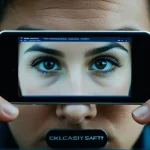Impact of UK Video Games on Education and Learning
The rise of UK educational video games has significantly reshaped modern education by blending engagement with learning. These games employ interactive storytelling and problem-solving, which foster critical thinking and retention better than passive textbook methods. Unlike traditional learning, UK game-based learning introduces instant feedback, adaptive difficulty, and collaborative environments that motivate learners actively.
Studies show that UK-developed video games improve motivation and deepen understanding, especially in subjects like history and science. For example, students exposed to game-based learning strategies often demonstrate higher retention rates and enhanced skills such as strategic planning and decision-making. This active participation contrasts with conventional education, where learners passively receive information.
In parallel : What Are the Benefits of Using Video Games in UK Computing Education?
Furthermore, video games and learning in the UK emphasize real-world applications, integrating complex scenarios that help players apply knowledge practically. This experiential learning promotes not only knowledge acquisition but also emotional engagement, which enhances memory and encourages curiosity.
Overall, the impact of UK educational video games reaches beyond entertainment, transforming classrooms into dynamic spaces where learners take control of their progress. This shift underscores why UK game-based learning continues to emerge as a powerful tool alongside traditional education, offering a valuable supplement for diverse learning styles.
Also to see : Can Video Games Improve Critical Thinking Skills?
Notable UK-Made Educational Video Games
UK educational games have significantly shaped the learning landscape with their innovative approaches and engaging content. One of the most internationally acclaimed British educational game examples is Minecraft: Education Edition, developed from the original Minecraft by Mojang and enhanced by UK-based educational developers. This version focuses on collaboration and creativity, helping students learn subjects from science to history via immersive, block-building gameplay.
UK studios continue to advance educational gaming by combining cutting-edge technology with pedagogical expertise. Titles emerging from these developers often feature adaptive learning techniques, making them suitable for diverse educational needs. For instance, some British educational game examples incorporate problem-solving and critical thinking challenges, preparing learners for real-world scenarios.
The unique features of UK educational games include interactive storytelling, real-time feedback, and curriculum alignment, fostering a deeper engagement compared to traditional learning tools. These games emphasize active participation, which promotes long-term retention of knowledge. Recognizing the contributions of notable UK game developers highlights the country’s vital role in shaping the future of educational gaming worldwide.
Research Findings on Effectiveness and Learning Outcomes
Recent UK educational game research highlights mixed but promising results regarding the effectiveness of video games in learning. Numerous academic studies and government reports show that video games can enhance student engagement and facilitate knowledge retention. For instance, students using educational games demonstrated measurable improvements in problem-solving and critical thinking skills compared to those in traditional classroom settings.
Learning outcomes associated with video games in the UK often focus on skills such as collaboration, digital literacy, and motivation. Evaluations reveal that video games provide an immersive and interactive experience, which supports active learning—a key factor in improving knowledge acquisition and retention.
However, studies also recognize several challenges. One significant limitation is the variability in educational content quality within games. Additionally, educators report difficulties in integrating games into standardized curricula due to time constraints and limited resources. There’s also a need for more longitudinal research to assess long-term learning benefits beyond immediate engagement.
In summary, while the learning outcomes video games UK studies reveal strong potential, continued investigation is essential to address these challenges and optimize video game use for education.
Classroom Applications and Integration into Curriculum
Integrating video games into classroom teaching offers dynamic ways to engage pupils across the UK curriculum. Teachers in both primary and secondary schools have adopted games as interactive tools to reinforce concepts in subjects like maths, science, and history. For instance, simulation games enable students to experiment with scientific principles firsthand, making abstract ideas tangible.
Effective classroom game integration requires alignment with curriculum goals to ensure learning outcomes are met. Educators design lesson plans that incorporate gameplay followed by reflective activities or quizzes, combining fun with assessment. The UK curriculum encourages this approach by highlighting digital literacy and problem-solving skills, which video games can nurture.
School leaders emphasize teacher training and resource support as crucial for smooth integration. Many report that confident use of games transforms student motivation and participation. However, careful selection of age-appropriate, curriculum-relevant games is essential to avoid distractions.
Overall, teaching with video games in the UK shows promise as a complement to traditional methods, providing an immersive learning experience that suits various learning styles while adhering closely to curriculum requirements.
Benefits and Drawbacks of UK Video Games for Learning
Educational video games in the UK offer notable benefits for education, particularly in developing critical skills like problem-solving, creativity, and digital literacy. These games often boost motivation by making learning engaging and interactive. For learners who struggle with traditional methods, video games provide an inclusive environment that adapts to different paces and learning styles, supporting greater accessibility.
However, there are challenges of educational video games that educators and parents must consider. Excessive screen time remains a concern, potentially impacting health and attention spans. Equity is another issue since not all students have equal access to the necessary technology, which can widen educational gaps. Furthermore, the quality and relevance of content vary, and some games may oversimplify or misrepresent complex subjects, reducing their overall effectiveness.
In terms of who benefits most, UK video game benefits for education tend to favor self-directed and visual learners. Those with special educational needs also often gain more from game-based learning, thanks to customized experiences. Nevertheless, balancing time spent on games with other activities is crucial to maximize benefits while minimizing drawbacks.
Policy, Industry, and Future Directions in UK Educational Gaming
The UK education policy on video games increasingly recognises gaming as a powerful educational tool. Government initiatives encourage integrating digital games that enhance learning outcomes and critical thinking skills. Policies aim to support innovative methods while ensuring content aligns with curriculum standards. This approach fosters a balanced role for video games in classrooms without sacrificing core educational goals.
The UK educational gaming industry actively collaborates with schools to develop tailored resources. Prominent developers create engaging, curriculum-responsive games that combine entertainment with pedagogy. Industry partnerships often include workshops and pilot programs, ensuring games meet both educators’ and learners’ needs. These collaborations enhance engagement and make technology integration seamless.
Looking ahead, the future of educational games in the UK hinges on advancements like artificial intelligence, augmented reality, and adaptive learning algorithms. Such innovations promise personalised experiences that address individual student strengths and challenges. The industry is exploring immersive environments and data-driven feedback to make learning more effective and enjoyable. UK education policy supports these trends by funding research and promoting cross-sector collaboration to keep pace with technological progress.




